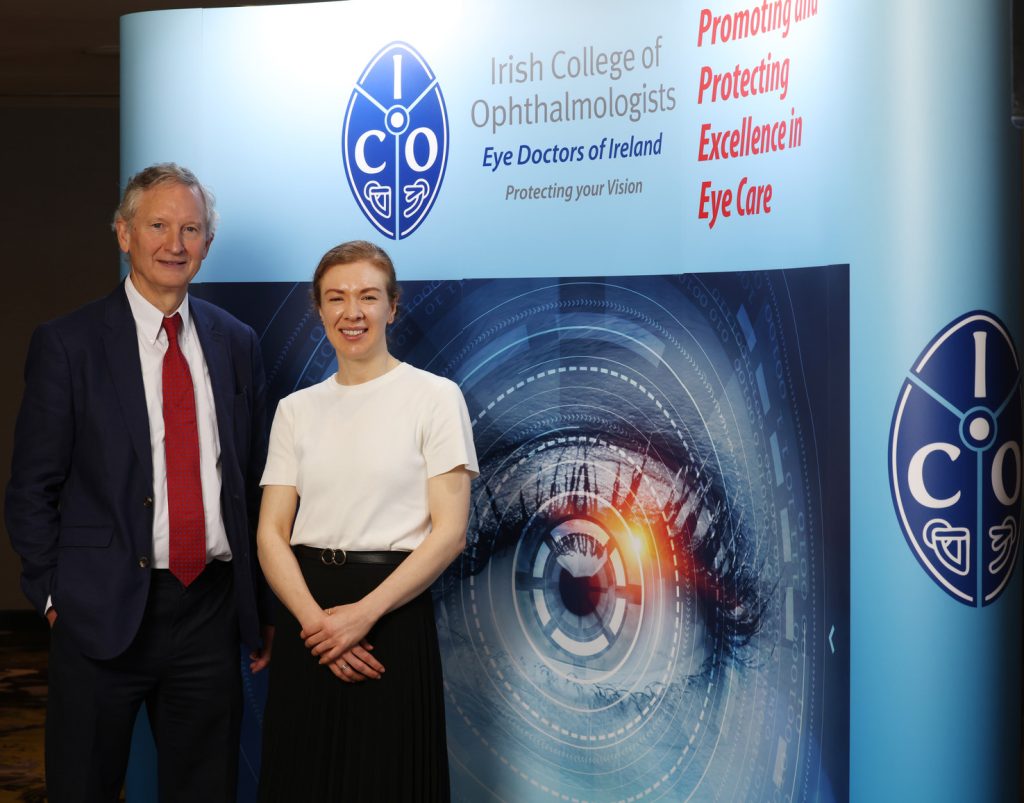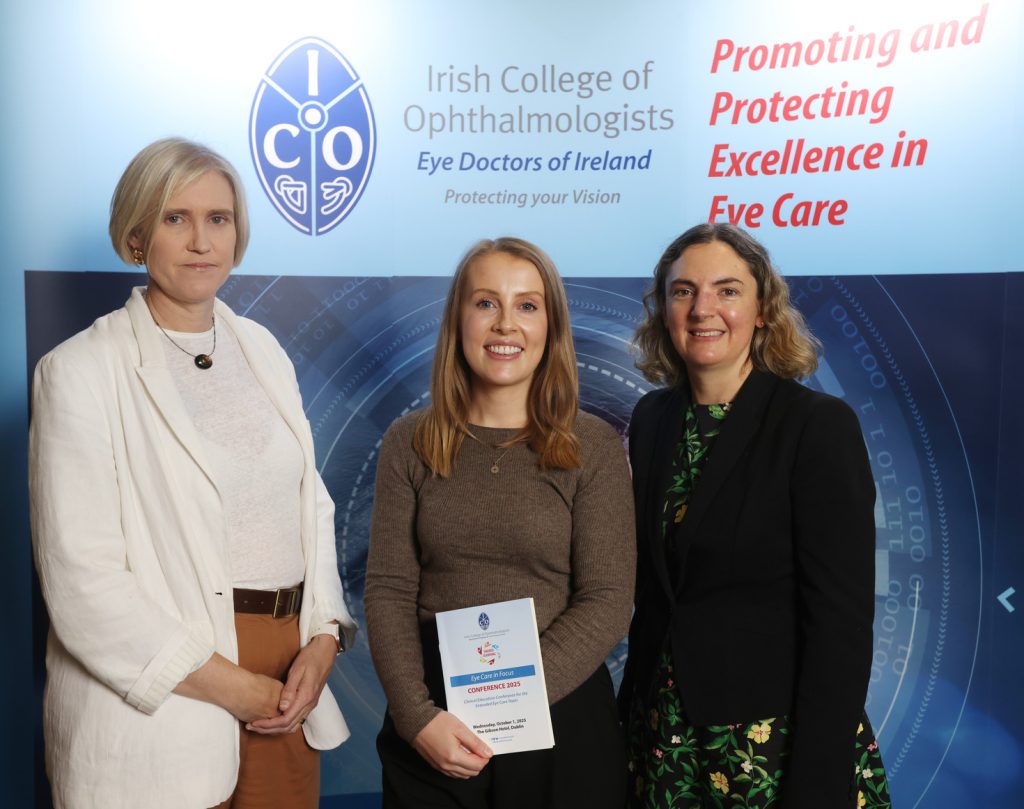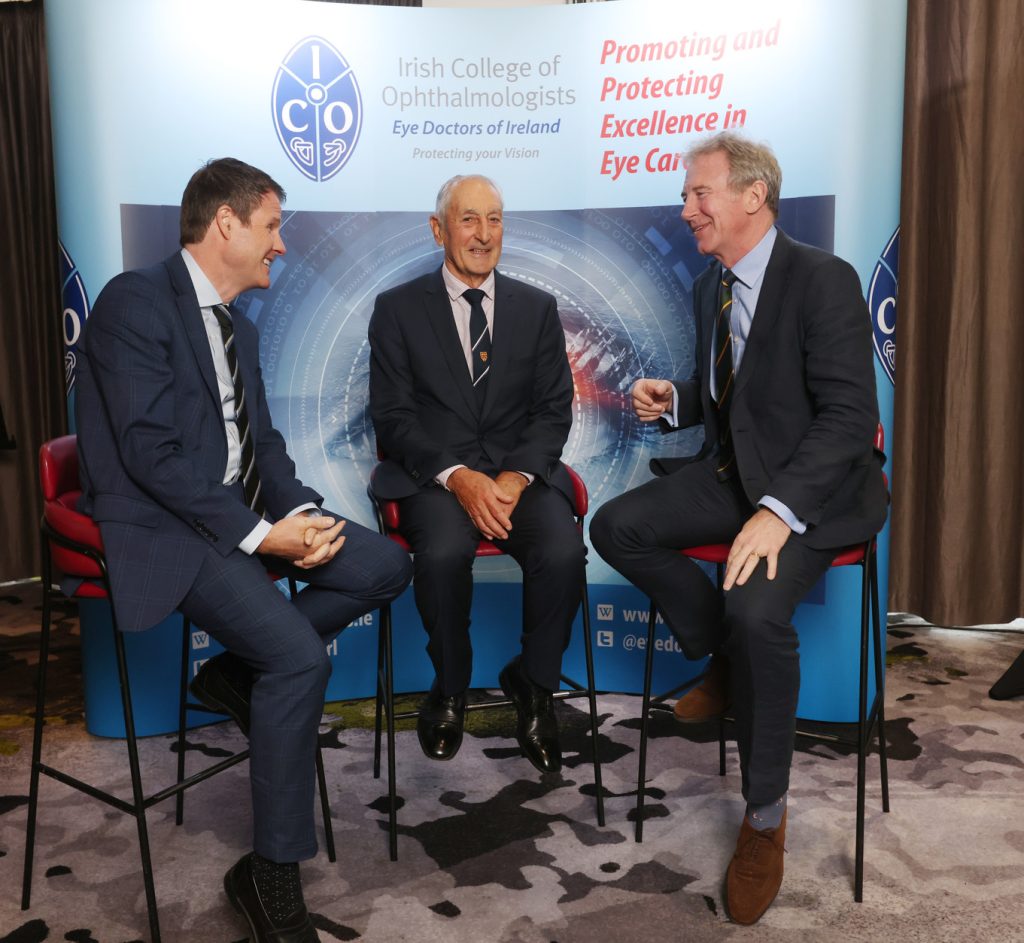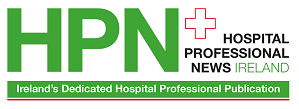Leading Eye Experts Share Clinical Insights and Integrated Models of Care at the Irish College of Ophthalmologists’ 2025 Eye Care in Focus Conference
National meeting highlights rollout of new cataract referral model, workforce planning initiatives, and evolving clinical practices in ophthalmology.
The Irish College of Ophthalmologists (ICO) hosted its annual Eye Care in Focus Conference 2025 at the Gibson Hotel, bringing together leading eye experts, clinicians, and healthcare professionals to discuss the latest developments in ophthalmology, integrated care pathways, and workforce innovation.
The event, now in its fourth consecutive year, serves as a key platform for collaboration across Ireland’s eye care community, with a programme designed to address both current challenges and emerging opportunities in the delivery of ophthalmic care.
Focus on Myopia Management and Care Pathways
A major clinical session on myopia was led by Professor Ian Flitcroft, Consultant Ophthalmologist at Children’s Health Ireland Temple Street, alongside Dr Michael Moore, Lecturer in Optometry at Technological University Dublin.
The session provided an in-depth review of community care pathways for myopia management and the development of clear referral criteria between hospital and community settings. Professor Flitcroft also discussed the recent European Medicines Agency (EMA) approval of low-dose atropine for myopia control, outlining implications for prescribing practice and pathway integration.
With myopia now affecting a rapidly growing proportion of children and young adults globally, the session equipped attendees with practical guidance on clinical best practice and early intervention strategies.
Rollout of Standardised Cataract Referral Letter
Ms Aoife Doyle, HSE National Clinical Lead for Ophthalmology and Consultant Ophthalmic Surgeon at the Royal Victoria Eye and Ear Hospital and St James’s Hospital, announced the rollout of a national standardised cataract-only referral letter.
The initiative, developed under the National Clinical Programme for Ophthalmology, aims to streamline referral processes for optometrists and GPs, ensuring efficient triage and reducing waiting lists for cataract surgery.
“This letter provides the minimum dataset required to identify cataract patients likely to need surgery and to allocate them directly to one of the integrated eye care pathways,” said Ms Doyle.
“It follows NHS GIRFT (‘Getting It Right First Time’) guidelines and builds on successful models already operating in Ireland. High-volume cataract theatres and community pre-assessment clinics have shortened waiting times significantly, reducing visits from three or four down to one. Levels of conversion to surgery as high as 90–95% have been achieved in some UK units.”
The Clinical Programme for Ophthalmology is collaborating with Healthlink to make the referral form digitally available across the HSE.
Ms Doyle noted that the Dublin and North East region’s experience with standardised referrals has been “very positive,” and the form will soon be available to all six HSE health regions.
Workforce Planning and Strategic Frameworks
Sessions on workforce planning underscored the importance of developing multidisciplinary eye care teams. Sarah Spain, Senior Orthoptist and HSCP Lead for the National Clinical Programme, discussed recruitment and retention strategies for orthoptists within the Irish health service.
Deirdre Kenny, Assistant National Lead for the HSE’s Health & Social Care Professions (HSCP), outlined the HSCP Deliver strategic framework — a plan to strengthen collaboration across 26 allied health professions through regional leadership structures and advanced-practice pathways.
“Optometrists and orthoptists are part of the HSCP family,” said Ms Kenny. “HSCP Deliver is about articulating the collective impact of these professionals on population health and supporting integrated, person-centred care.”
Multidisciplinary Practice and Communication
Further highlights included:
Dr Emily Greenan, Surgical Ophthalmology Trainee, presenting findings on language barriers in ophthalmology based on a University Hospital Limerick study examining translation service use among patients with limited English proficiency.
A panel discussion on the expanding roles of orthoptists, ophthalmic nurses, and optometrists featuring Miss Angela Knox, Kendal Hinds, Mary O’Mahony, and Olivia Burke.
An “Eyes on Tomorrow” podcast session hosted by Mr John Ferris and Dermot Keogh, with Mr Patrick Condon discussing his new book Eye Healthcare – A 90 Year History of Progress.
A case-based discussion led by Dr Karen Curtin, exploring clinical scenarios in cataract and glaucoma management.
Collaborative Vision
Closing the event, Mr Gerry Fahy, President of the ICO, praised the conference as “a vital forum for shared learning across the disciplines.”
“The Eye Care in Focus Conference is an important event for all involved in delivering eye care in Ireland — from ophthalmologists to orthoptists, optometrists, nurses, and technicians,” he said. “It reflects our shared goal of enhancing eye care and improving patient experience nationwide.”






